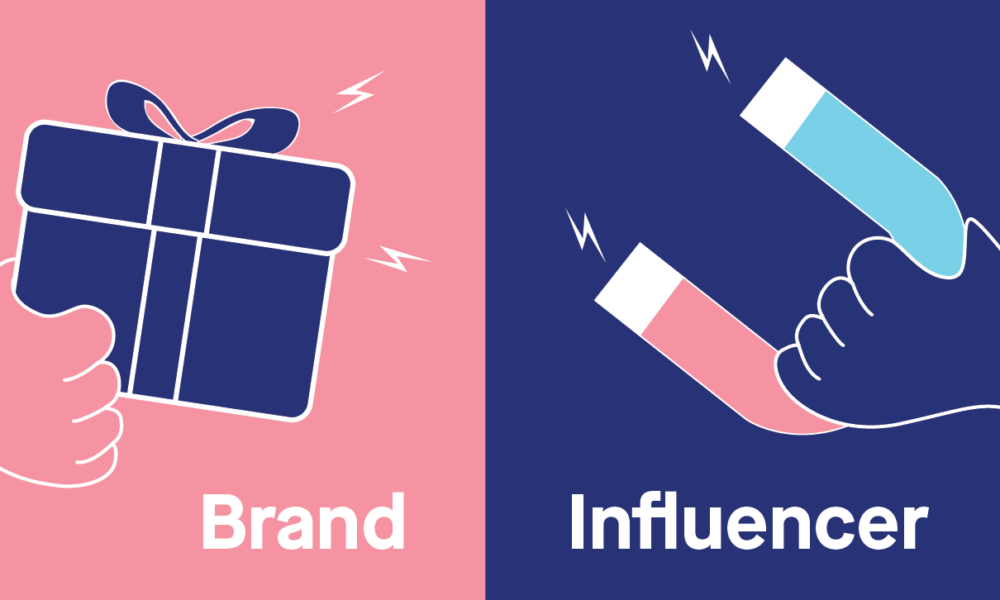The number of small businesses is constantly rising. So, to survive in such a fierce marketplace, you need to make your brand visible to your target audience. But, putting yourself out there is not that simple, given the fact that, today, the majority of businesses are using at least some digital marketing techniques.
This is why influencer marketing has become incredibly important nowadays. Instead of promoting your business on your own, you will let other, more influential people in your niche to that for you.
This method sounds great, but how to find the right influencers for your marketing campaigns?
Here are a few strategies you will love.
1. Look for Micro-Influencers Among Your Social Media Followers
If you pay a closer attention to your follower list, you may notice that there are several micro-influencers that would be interested in your products. And, working with them may be great for your business for several reasons.
First, as they are already interested in working with you, you won’t have to waste your breath trying to explain the benefits of your products. On the other hand, those influencers who aren’t familiar with your brand or don’t see its relevance may be hesitant to team up with you.
Now, finding influencers this way is simple, but you need to know how to recognize them. For example, go to your Instagram profile and examine all your followers. Analyze their profiles and look for people that have between 1000 and 100.000 followers. The larger number of followers, the greater reach.
The next step is to see how frequently they post content and whether their content is relevant to your niche. In other words, have they already promoted businesses similar to yours? If they have, this is an obvious indicator that they may be interested in working with you.
2. Pay Attention to Your Hashtags
The fact that an influencer hasn’t heard of your business doesn’t mean that they are not interested in working with you. This is why you need to put yourself out there and hook their attention. And, this is where hashtag research may help you.
Simply put, you need to find authoritative individuals in your niche who are already using products/services similar to yours and promoting them on social networks. These people will definitely be more interested in what you have to offer.
When choosing a hashtag to analyze, you need to go with a specific one. For example, if you’re selling organic makeup, #organicmakeup will be a more logical choice than generic #makeup.
The next step is googling this hashtag, as Google will give you the results from Instagram, Twitter, and Facebook. To get the most of this process, you can use hashtag research tools like Rite Tag, ExportTweet, Hashtagify, or Trendsmap.
You can start with Instagram. All you have to do is open one of the results, see who shared the image, and find them to see whether they’re a perfect fit for your campaign. Just like with searching for influencers among your followers, here you need to pay attention to the type of posts they publish and the number of their followers.
If you’re satisfied with what you see, then reach out to an influencer. You could even engage with them on a more personal level, by sending them freebies. If they liked the product, the influencer would then review it on their social networks or even write a blog post about it.
3. Find Local Bloggers
For local small businesses, reaching out to the right target audience is key. And, this is where local bloggers can help you. They write about the topics relevant to the people from a particular area and discuss trends and products they may be interested in. The idea behind connecting with these influencers is obvious- if their target audience considers them a reliable source of information, they will trust the products they promote, too.
Now, to find bloggers in your area, start by using the term “blogger” + your city/region name. For instance, googling “bloggers in San Francisco” will provide you with a list of San Francisco’ top bloggers.
Logically, not all these bloggers are relevant to you. For example, an organic makeup manufacturer from San Francisco has nothing in common with a San Francisco-based food blogger, except the location. So, connecting with them is purposeless. First, the chances are they won’t be interested in working with you. Second, even if they agreed to promote your brand, they would send you a bunch of irrelevant traffic.
This is something you can easily avoid by adding a keyword related to your business. For example, searching for “makeup blogs in San Francisco” or “Francisco makeup blogger” may provide you with precise results relevant to you.
Once you find your bloggers, check their sites and analyze the quality of their content. Check their social media profiles, too, to determine how people engage with their content. If everything’s ok, you can reach out to them and ask them to team up.
4. Invest in the Right Third-Party Tools
The techniques mentioned above are great, but they’re extremely exhausting and time-consuming. They require a lot of manual work and, at the same time, don’t give you the opportunity to track your KPIs and observe the effectiveness of your campaigns.
This is why you should automate your influencer research. A recent study by digital marketing expert behind Dibz proves that using link building tools helped them find over 2000 top influencers in record time. So, what’s the catch?
Well, Dibz let you do your research based on your major keywords and filter the results by adding “custom search parameters” to your search to narrow it. You can also set TLD, language, and date range. When used properly, these features incredibly important to the analysis of local bloggers I’ve mentioned above. Also, this tool also has inbuilt SPAM factor, which analyzes numerous KPIs like site’s PA, DA, referring domains, external links, and spammy anchors, eliminating poor search results and presenting you with only those worthy of your attention.
Conclusion
Working with influencers may bring numerous benefits to the table, especially when it comes to teaming up micro-influencers. Namely, unlike top influencers, they charge brands less than $250 per a branded post, which makes them an ideal option for small businesses and startups. And, the results are amazing. You will boost brand awareness, reach out to the right people, and engage them more effectively.
How do you find influencers in this overcrowded digital landscape?



